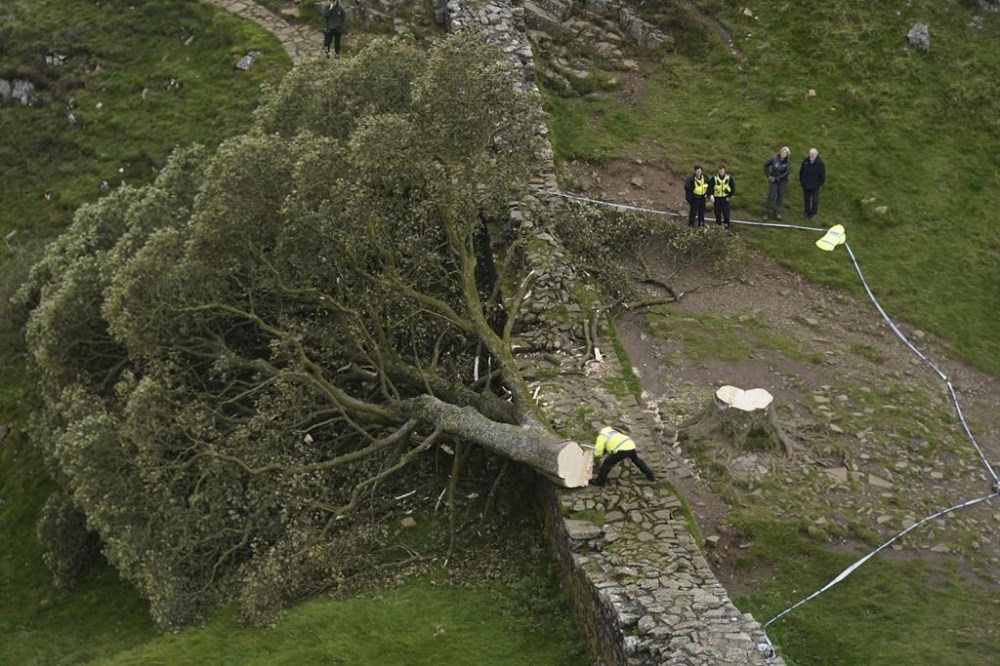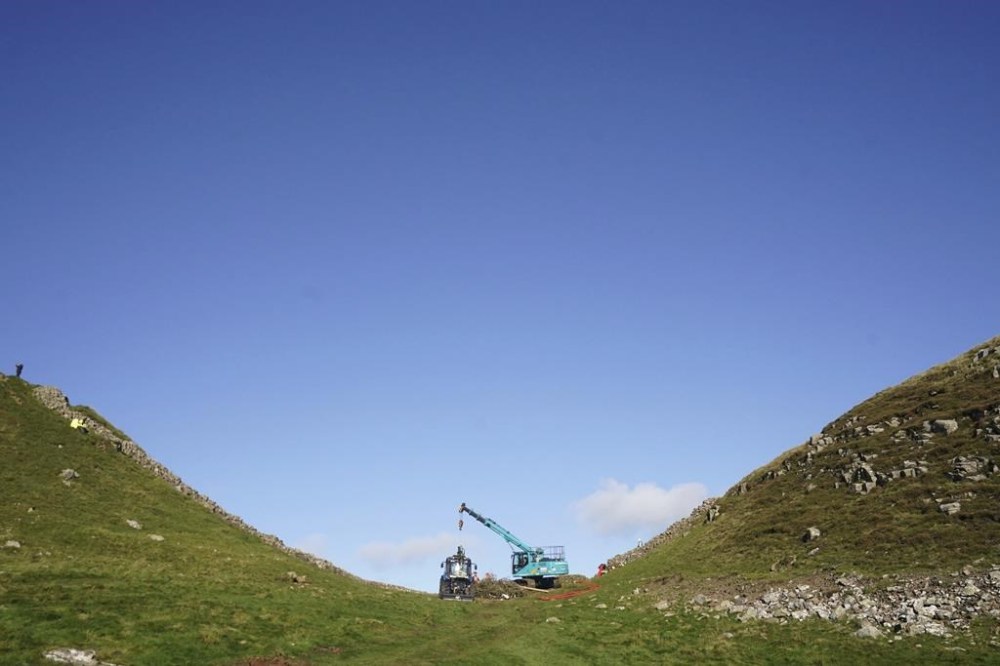Crane removes famous tree by Hadrian’s Wall in England that was cut down in act of vandalism
Advertisement
Read this article for free:
or
Already have an account? Log in here »
To continue reading, please subscribe:
Monthly Digital Subscription
$1 per week for 24 weeks*
- Enjoy unlimited reading on winnipegfreepress.com
- Read the E-Edition, our digital replica newspaper
- Access News Break, our award-winning app
- Play interactive puzzles
*Billed as $4.00 plus GST every four weeks. After 24 weeks, price increases to the regular rate of $19.00 plus GST every four weeks. Offer available to new and qualified returning subscribers only. Cancel any time.
Monthly Digital Subscription
$4.75/week*
- Enjoy unlimited reading on winnipegfreepress.com
- Read the E-Edition, our digital replica newspaper
- Access News Break, our award-winning app
- Play interactive puzzles
*Billed as $19 plus GST every four weeks. Cancel any time.
To continue reading, please subscribe:
Add Winnipeg Free Press access to your Brandon Sun subscription for only
$1 for the first 4 weeks*
*$1 will be added to your next bill. After your 4 weeks access is complete your rate will increase by $0.00 a X percent off the regular rate.
Read unlimited articles for free today:
or
Already have an account? Log in here »
Hey there, time traveller!
This article was published 12/10/2023 (695 days ago), so information in it may no longer be current.
LONDON (AP) — A crane on tracks removed large sections of a much-loved and often-photographed tree Thursday from the place near the Roman landmark of Hadrian’s Wall in northeastern England where the sycamore was cut down two weeks ago in an apparent act of vandalism.
The National Trust, which seeks to protect England’s heritage and natural landscapes, said it was necessary to move the downed tree to protect the delicate and now-damaged wall and to make the site safe again for visitors.
The stump, which could generate new shoots, will be kept in place and is currently behind a protective barrier. Seeds also were collected to see if they could be used to propagate new saplings.

Though the 50-foot-long (15-meter-long) tree was too big to move in one piece, experts hope that relocating the trunk in large sections will provide opportunities for preserving it.
“We’ve explored every option for moving the tree, and while it isn’t possible to lift it in one go, as the tree is multi-stemmed with a large crown, we have aimed to keep the trunk in as large sections as possible, to give us flexibility on what the tree becomes in future,” said Andrew Poad, the site’s general manager for the National Trust.
Northumbria Police arrested a 16-year-old boy and a man in his 60s after the tree was felled a fortnight ago. They were released on bail pending further inquiries into what a chief detective described as the “senseless destruction” of the tree.
The tree was one of the main landmarks along Hadrian’s Wall, a UNESCO World Heritage Site built nearly 2,000 years ago, when Britain was part of the Roman Empire, to guard its northwestern frontier. The National Trust is dating the tree but believes it was planted in the late 19th century.
For generations, walkers have paused to admire and photograph the tree at Sycamore Gap, which was made famous when it appeared in Kevin Costner’s 1991 film “Robin Hood: Prince Of Thieves.”
The tree, which was cut down near the base of its trunk, could grow again, experts said, though they cautioned that it would never be the same.

“Effectively, what the perpetrator has done is coppice (prune back) the tree,” Poad said. “So ironically, they have prolonged the life of the tree.”
The National Trust has received thousands of messages about the tree, with advice on what could be done with the felled remains, including making benches, a sculpture or souvenirs to sell.
There will be a public consultation about what happens next at the site.

